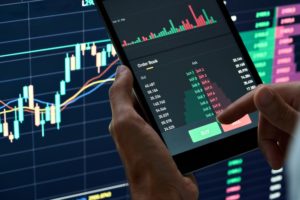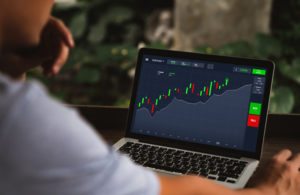The crypto trading space is one where it takes just a few seconds for numerous changes to take place. It doesn’t come as a surprise that crypto traders routinely use various abbreviations, acronyms, and terms. These are mostly used to refer to particular concepts and situations in cryptocurrency trading, general finance and even investment management. If you are new to the world of cryptocurrency trading, there is a possibility that you may be confused due to some of these terms. Here is a list of them that you need to familiarize yourself with in order to avoid problems:
FOMO; Fear of Missing Out
The act of panic-buying cryptocurrencies because of the fear of missing out is defined as FOMO. Traders sometimes start panicking because they think they are missing out on a trading opportunity and acquire crypto assets because others are doing so. However, the ideal decision requires market analysis and strategic thinking, whereas FOMO results in emotional decisions. In most scenarios, traders experience FOMO in a bull market, where there is a rise in asset prices. This term is also used by veterans to refer to new crypto traders who purchase assets due to the hype surrounding them.
HODL
This refers to the trading strategy of purchasing and then holding onto cryptocurrencies. Those who follow HODL will buy the digital assets of their choice and then hold onto them, even if there are serious price drops. This is because they are looking for extended profits by keeping the assets as a long-term investments. The HODL strategy is often used by traders who believe in the future potential of a specific cryptocurrency. These people are called HODLers, but it doesn’t usually have a negative outcome as it happens in the case of FOMO.
DYOR; Do Your Own Research
This term is rather self-explanatory and is commonly used in cryptocurrency trading. Traders should always do their own research before they make any decisions. It means that you shouldn’t rely on others’ opinions or advice when you are purchasing cryptocurrencies. DYOR is also applicable when you have to come up with your own trading strategy. Cryptocurrencies also carry the same risks as other assets, which means that traders should analyze the information at their disposal and then develop a strategy.
FUD; Fear, Uncertainty, and Doubt
This is not exclusive to the world of crypto trading but is used quite frequently. It basically refers to a trading strategy that entails spreading information about a specific organization or asset. The aim is that the stream of information will result in fear, uncertainty, and doubt amongst the other traders. This will force them into making market decisions that they wouldn’t make otherwise. The trader who began the misinformation stream may decide to sell the asset for increasing their profit. Therefore, traders are told to double-check their information before they make any decision.
All-Time High and All-Time Low
The highest value that an asset has reached on a trading platform is referred to as the all-time high. The ATH number is always stated in pairs, rather than individually. For instance, you will find the All-Time High value of the BTC/USD pair. When an asset reaches an ATH value, it means that all crypto traders who bought it before that will receive some profit. As far as the All-Time low is concerned, it refers to the other end of the spectrum. It is the lowest value of the particular investment. When this happens, traders who have invested in the asset will face serious trouble.
ROI; Return on Investment
Once again, this particular concept is not exclusive to the crypto trading market. However, crypto traders use this concept for calculating the performance of their investment in a market. The ROI of any investment can be calculated by deducting the current value of an asset from its original value and then dividing it by the original cost. ROI is an indicator of the growth of your investment, or its depreciation, over time.
Due Diligence
This refers to the investigation that a crypto trader should make before they come to an agreement with another party, such as signing up on a crypto exchange, or with a broker.







More Stories
Koinal Review – Is Koinal Scam or a Trusted Broker? (Koinal.ai)
Fxp360 Review – Is Fxp 360 Scam or a Trusted Broker? (Fxp360.com)
Coinbase Files A Petition To The SEC, Argues That Staking Should Not Be Classified As Securities